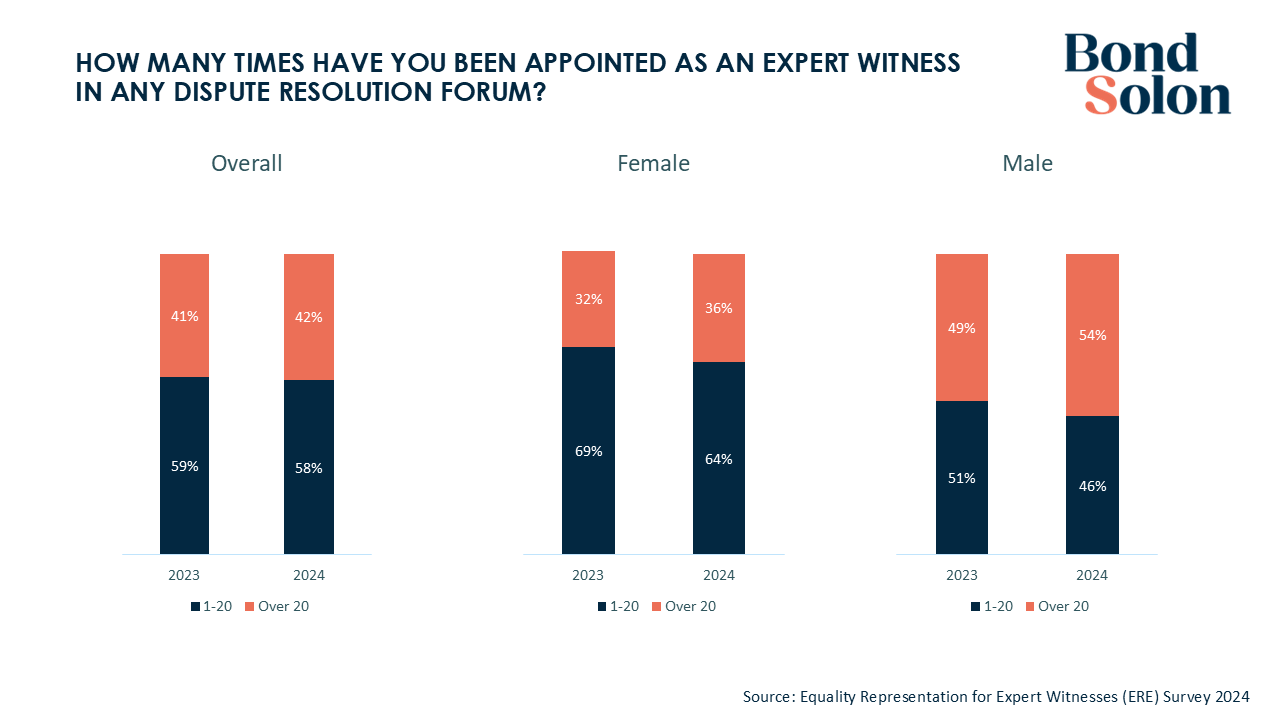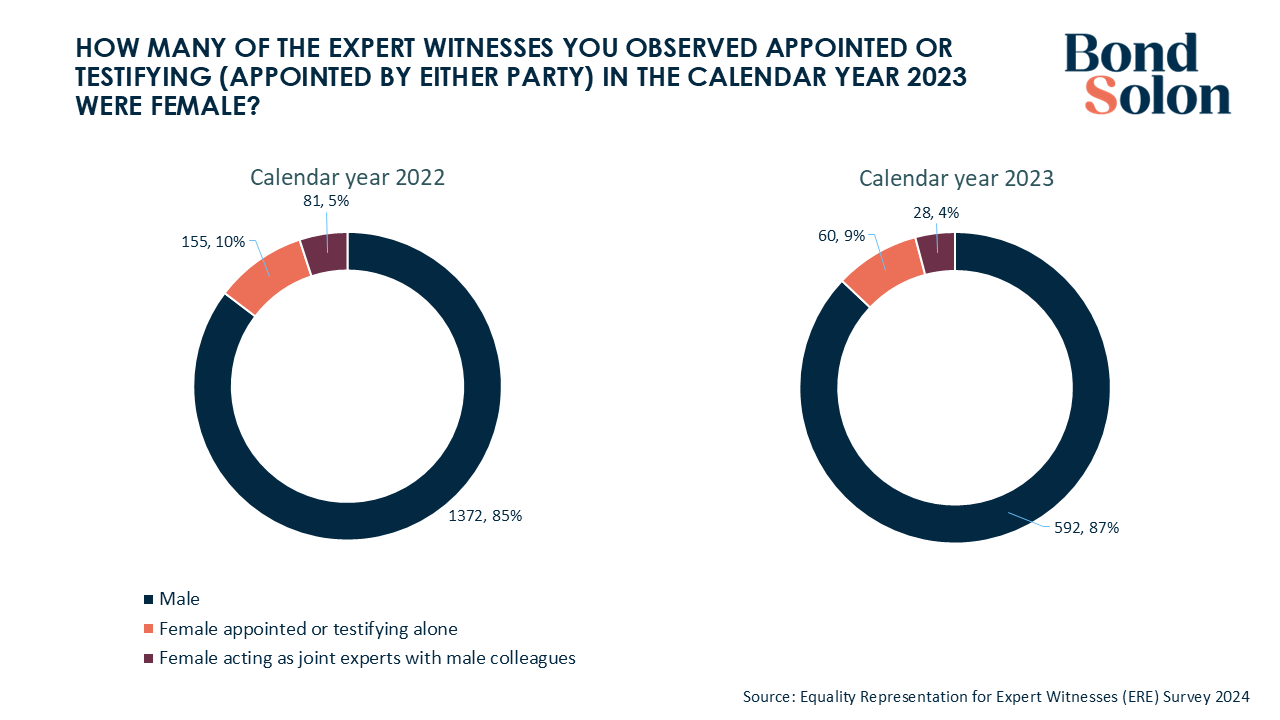It’s been two years since Equal Representation for Expert Witnesses (ERE) launched the ERE Pledge to increase the number of women appointed as expert witnesses.
The Pledge, which has 1599 signatures, was launched after a survey in 2020 revealed that more than half of respondents had not seen even one female expert witness testify in the previous three years.
ERE’s second survey to date was published at the end of June. It shows signs of progress but co-founders, and partners at consulting firm AlixPartners, Kathryn Britten and Isabel Kunsman acknowledge that an overall “apparent lack of progress is not unexpected” at this stage.
The simple fact is that as experts are drawn from a wide range of professions, where diversity and inclusion is lacking in those disciplines so too will it lack in the pool of witnesses. In this case we are looking at gender parity, but it applies to diversity more generally.
Commenting on the survey findings, Britten and Kunsman said: “The aim of the ERE initiative is to achieve a lasting cultural transformation, which takes time. However, this year’s survey shows signs that change is slowly starting to happen.
“Expert witnesses are one of the cornerstones of a robust legal system. To bolster the public’s trust in our courts we must continue our work to achieve a bigger, stronger, and truly diverse pool of experts.”
State of play
The 2024 survey found, for example, that the number of female experts appointed more than 20 times rose from 32% in the previous survey to 36%. This reflects that, although it is distinctly difficult for female experts to be appointed for the first time, once they have been given an opportunity to gain experience, they are being called on to do so again.

Moreover, 97% of female respondents said they regularly draft expert witness reports or play a major role in drafting them, compared with 93% of men.
The apparent barriers to entry for women are disappointing given the survey’s female respondents showed a strong aspiration to participate as lead experts. Of the female respondents who had yet to provide written or oral expert evidence, 88% said they hope to do so in the future, up from 79% in 2023.
The headline figure though is that women’s participation had not moved on much since the previous survey, with respondents saying that women were appointed or testified as the sole expert witness in just 9% of their cases in 2023, compared to 10% in 2022.

Opening the door
Among the solutions to increasing the number of women appointed to lead expert roles was a suggestion that aspiring female experts should prioritise becoming more visible to instructing lawyers, for example through networking, speaking opportunities, or use of social media. Male respondents, in particular, suggested formal mentoring schemes or simply asking an expert to mentor them.
“Men can use their dominant position in the field, and their wealth of experience as both witnesses and instructing lawyers, to support women. Allyship, an active effort to support and advocate for people with less privilege, is critical for improving representation – and a potentially powerful way for experienced colleagues to make a real difference”, the report said.
The report also recommended a variety of ways to increase the pool of experts. Gender-diverse shortlists proved the most popular among respondents, as per last year’s survey. Another high priority was for organisations to offer greater internal support for female expert witnesses or those aspiring to the role.
Britten told Bond Solon: “Many professions still lack gender diversity at the most senior levels. While diversity and inclusion initiatives within relevant organisations are starting to make a difference, it will take time for a new pipeline to develop the breadth of knowledge and experience necessary for individuals to take on expert witness roles.
Consequently, it is crucial for aspiring experts in these industries to have opportunities to attend meetings with lawyers and hearings to gain an early understanding of the expert witness role.”
She added: “It is beneficial for instructing counsel to identify such individuals within expert witness teams and support them to attend meetings and hearings for training purposes. Since parties are unlikely to want to pay for unnecessary attendance at meetings, employers training expert witnesses must be willing to invest in this “on-the-job” training to give aspiring experts the visibility they need.
“Achieving gender parity, particularly for female experts in male-dominated professions, will take time. However, this challenge should not deter efforts; on the contrary, it demands even greater effort to enable diversity and inclusion goals to be met.”
Author: Hannah Gannagé-Stewart
19 August 2024

